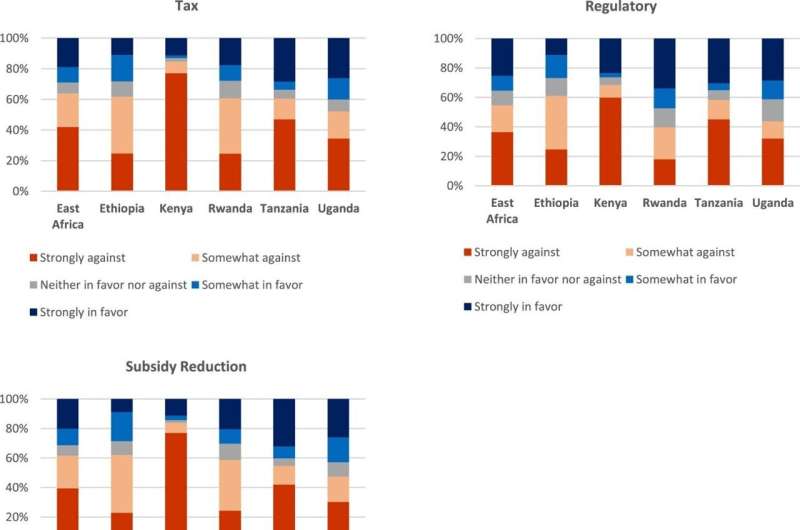This article has been reviewed according to Science X's editorial process and policies. Editors have highlighted the following attributes while ensuring the content's credibility:
fact-checked
trusted source
proofread
Education and information can increase the acceptance of climate policies

An important question for policymakers worldwide is how to make climate and environmental policies acceptable among the populations. A new study published in Climate Policy sheds light on the preferences in five East African countries. The study shows, among other things, that education and information about how revenues from carbon taxes are used are important factors.
Making climate policies acceptable to the public is crucial to make them effective and to avoid resistance and protests. Research has, until now, focused on high-income countries. This new study, however, is based on a survey with 4,766 respondents in Ethiopia, Kenya, Rwanda, Tanzania, and Uganda. It turns out that there are both similarities and differences compared to previous studies.
Important inform how revenues will be used
The researchers focused on educated individuals in urban areas since they are likely to influence policy processes. This also means that the sample does not fully represent the total East African population.
One conclusion, that aligns with previous studies, is that a higher level of education and climate change concern are linked to a higher acceptance of policies aimed at reducing fossil fuel consumption.
If you specify how the revenue from a climate tax or subsidy removal would be used, the support for these policy instruments almost doubled.
Social programs more important than environmental
In contrast to earlier studies, the researchers found that investments in social programs, not environmental programs, increased the acceptability the most.
"One possible explanation would be that in a country where poverty is prevalent, social issues are more urgent to people," says Daniel Slunge, one of the study's authors.
Trust in government didn't seem to play a big role for the acceptance. There were also significant differences between the countries.
The main conclusions from the study are:
- It's important to specify how the revenue from a climate tax will be used—clear information more than doubles the acceptance.
- Investing the revenues in social programs leads to better acceptance of the policies than if they are invested in environmental programs.
- Investing in education and information can increase the acceptance of climate policies.
- Further studies are needed to tailor policies for each country.
More information: Niklas Harring et al, Public acceptability of policy instruments for reducing fossil fuel consumption in East Africa, Climate Policy (2024). DOI: 10.1080/14693062.2024.2302319
Provided by University of Gothenburg




















